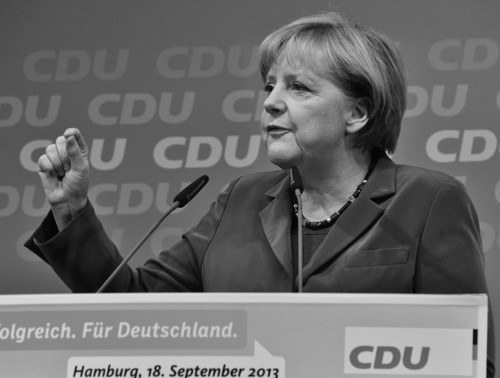“The political spectrum in Germany is a whole other universe,” said Dr. Jay Rosellini, a German language and culture professor at Suffolk University, while discussing the results of Germany’s parliamentary election last weekend.
The Christian Democratic Union (CDU) party, currently led by Chancellor Angela Merkel, has dominated Germany’s post-war politics with its conservative policies–although these policies would not seem conservative by American standards. The other major party in Germany, the Social Democratic Party (SDP), is more liberal than the CDU but not as far to the left as the Free Democratic Party (FDP) or the extreme liberal party, Die Linke. Another growing force in German politics is the Green party, which focuses on environmental concerns.
This year’s federal elections reaffirmed the status quo with the CDU remaining the dominant party as it garnered 42.5 percent of the vote, allowing it 311 seats in parliament.
“The results look rather clear,” Suffolk University Visiting Scholar Friedrich Loehr, former ambassador of Germany to North Korea from 2005 to 2007, said, “The result is quite striking for the CDU and Angela Merkel. She can now say, ‘Look, I’ve managed the euro crisis.’”
The CDU won 7.7 percent more of the vote this election than it did during the last federal elections in 2009. The big story in this election though, said Loehr, is the failure of the FDP. The party only took 4.8 percent of the vote, not even reaching the 5 percent threshold needed to gain seats in parliament.

(Photo by Flickr user Glyn Lowe Photoworks, 1 Million Views, Thanks)
“The FDP lost 10 percent since last election. It was a disaster for the FDP,” Loehr said, “It’s their first time out of parliament since 1949 and they only have representatives in nine out of the 16 regional parliaments.”
Without representation from the FDP, the parliamentary seats will be divided up between the CDU, the SDP, Die Linke, and a hodgepodge of fringe parties. Five seats short of the 316 needed to control parliament, the CDU will have to form a coalition with another party to rule.
If the SDP aligned with Die Linke, a majority coalition of 319 seats could be formed to outnumber the CDU. “This won’t happen,” Loehr said, “The SDP doesn’t want to join the left.”
There could be a so-called ‘grand coalition’ formed by the CDU and the SDP joining together, but Loehr also believes this is problematic. “Despite the seemingly clear results for the CDU, any coalition will be difficult,” Loehr said.
“If there will be a grand coalition, it will lack a good opposition,” he said.
There were 22 other political parties that won votes in the election, too. While some exist very much on the fringe, like the neo-Nazi party, or are only focused on one issue, like an animal protection party and an ironically named non-voters party, some smaller parties can draw votes away from the top parties.
This was the first election the Alternative for Germany (AfD), an anti-euro party, participated in yet it was able to win 4.7 percent, just shy of the five percent needed to be seated in parliament. Another small party making noise is the Pirate party, known as the Internet party. Joining the growing radical movement of online hacking to promote openness in government, the party advocates for ‘liquid politics’ where there would be a permanent poll to decide who should rule.
“You have a lot of choices in German government,” Loehr said jokingly.
Voter turnout this year was only about 71.5 percent. “It was more like 91 percent in the 1990s,” Rosellini said. While more than 70 percent turnout may seem huge to Americans, it was “still pretty bad by German post-war standards,” Loehr said.
Most women voted for the CDU because of its woman chancellor, Merkel. “Up to 1970, women almost always voted with their husbands and the husbands didn’t hesitate to tell them who to vote for,” Rosellini explained, “But this doesn’t happen anymore.”
According to Loehr, the younger generation votes more for Greens and AfD while the older generation tends to vote for CDU.
“This is not just because of inertia, but for reliability and stability,” Loehr said.











